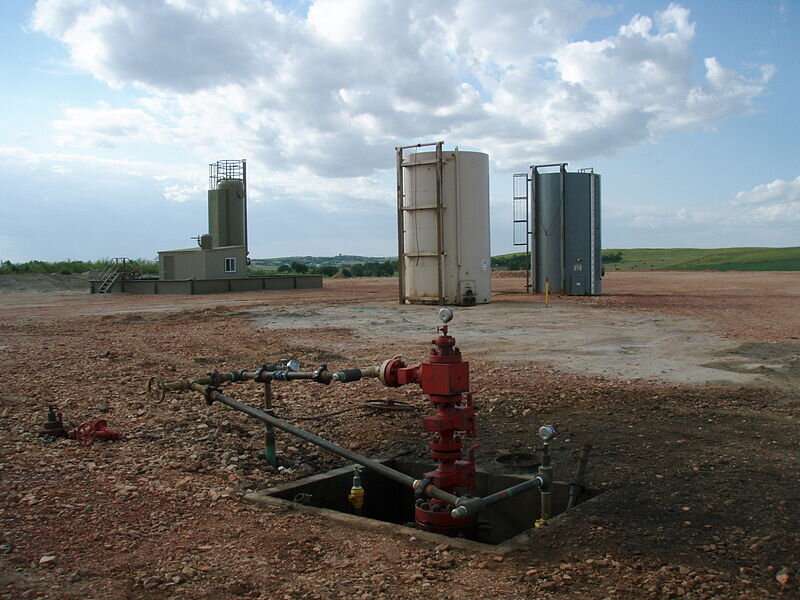Well head after all the Fracking equipment has been taken off location. Credit: Joshua Doubek. Wikimedia Commons/CC BY-SA 3.0
In a perspective piece that appears in the journal Science, Elaine Hill, Ph.D., an economist in the University of Rochester Medical Center Department of Public Health Sciences, calls for tighter regulation and monitoring of unconventional oil and gas development, commonly called fracking, as more evidence points to the negative health consequences of the practice.
The debate over fracking is often viewed through either an economic lens that emphasizes jobs and energy independence, or an environmental one that warns of the damage to air and water quality and human health. Because fracking technology has been operating on a significant scale in the U.S. for the past two decades, the scope of the public health impact due to long-term exposure to air, water, and noise pollution is only now becoming clear.
The rising toll in the form of increased rates of chronic diseases, stress on rural health care providers, and growing need for mental health and addiction services, ultimately diminish the economic returns for communities that host the fracking industry. "Many of the impacts have lifelong consequences on individual well-being, including future health, education, and labor market outcomes," said Hill and co-author Lala Ma, Ph.D., with the Department of Economics at the University of Kentucky.
Hill's research focuses on the complex local health, environmental, and economic implications of oil and gas extraction in the U.S. Her previous research was the first to link shale gas development to drinking water quality and has examined the association between shale gas development and reproductive health, and the subsequent impact on later educational attainment, higher risk of childhood asthma exacerbation, higher risk of heart attacks, and opioid deaths.
The perspective piece accompanies a study in Science that shows increased concentrations of four chemicals associated with fracking in the surface water near well sites, suggesting that wells could be a source of pollution in drinking water. These findings highlight one of the barriers to understanding, and mitigating, the health impacts of fracking as these operations are often shrouded by "trade secrets" and lax oversight. The new study contributes to the need to rethink regulations and monitoring systems, and require regulatory agencies to collect and release reports of additional chemicals in order to better assess the long-term health impacts, according to Hill and Ma.
"Understanding the exposure pathways at play is necessary for policy to effectively control the environmental damages from these operations tightening the stringency of currently regulated chemicals should be considered," said the authors.
More information: Elaine Hill et al, The fracking concern with water quality, Science (2021). DOI: 10.1126/science.abk3433
Journal information: Science
Provided by University of Rochester Medical Center





















